chronicles
|
Part of the Permculture ethos is community and I thought it a good idea to demonstrate commitment to our new community by joining the local volunteer fire service. A simple way of helping out and demonstrating to others that we are here for the long haul.
I joined up in late November and within the first six weeks I was called out five times. Luckily, only one of those was in the middle of the night. However, given where we live, I was always last to arrive at the fire station in the village and every time I got there the engines had already left. That was until this morning at 06:05 when my pager went off. This time I made it and joined the crew in the larger of the two engines leaving the fire station. Off we went. It was reported as a scrub fire, deep in the back country valleys full of pine plantations, about 45 mins drive from the village. When we got there we found several fires in various locations already going, so it was pretty much a matter of find a fire and start work. It is very dense forest with a thick undergrowth of gorse, so not easy to move around and drag heavy hoses. We were only able to get in so far before the helicopters came and did their job spectacularly well. At one point there were 3 helicopters with monsoon buckets working on the fire directly in front of us. Once we came down off the hills there was lots of standing around waiting to be told what would happen next and soon we were sent home. In this instance, luckily, there was no wind and it was overcast and there had been recent rains. If conditions had not been so kind the outcome could have been quite different. I'm glad I was able to fight my first fire today and not at the end of summer when everything is tinder dry. A worthwhile way to spend six hours on a Saturday morning. Unfortunately, there was evidence that all of these fires had been deliberately lit, unbelievable stupidity. Posted by Farmer Wan
5 Comments
Permaculture, of course. It's also for Plastic, Petrol and Power Tools. These aren't generally emphasised in permaculture philosophy but remember those compromises mentioned a couple of posts back? They mostly involve "P" words. After a five-month absence from Muntanui, we arrived back in March 2010, all ready to get jiggy with my Quest For Fertility plan. But everything had grown so much over Summer that the place was almost unrecognisable. The vegie garden was a jungle, rampant with chin-high weeds. We had two and a half weeks to tame our unruly property. This kind of ruled out the low-tech option, which involved flailing about with machetes and looking demented. Enter the Power tool/Petrol combo. Oh scrub cutter, how we did adore thee! You made short work of the vegie garden. You brought order to our driveway. You ensured I wouldn't get lost between the berry patch and the house. You readied us for Plastic. After the scrub-cutter carnage was over, we had a vegie garden with beds that were actually visible and a whole lot of chopped-up weeds that were already thinking about re-sprouting. We needed to kill them off and somehow improve the fertility of the soil in the beds, all while not living on site. That's when I turned to Jackie. Aussie organic gardening guru, Jackie French, is one of my heroes. In her book, The Wilderness Garden, she mentions covering weeds with clear plastic ("solarisation") as an effective killing technique. When my mate Jackie suggests trying solarisation, solarisation's what I try. So we piled all the weed debris on top of the beds, nailed clear plastic over them and flew back to Oz. When we removed the plastic eight months later, the weeds had indeed died but I'd been hoping they'd have broken down and made us some nice soil as well. They hadn't. They didn't. Bummer. A couple of friends who were staying with us at the time, Donald and Margaret from Abriachan Garden Nurseries, pointed out it didn't get hot enough here at Muntanui for the solarisation thing to crank up the composting process. We needed more heat... and for that, we needed more Plastic in the form of black weedmat. So on it went and on it stayed for another eight months until we arrived back at the end of August. The weeds hadn't rotted down completely but they'd made a lot of progress and we now had some organic matter to break up our clay. Phase 2 of the Quest For Fertility was complete. It was on to Phase 3... and one of the most hilarious P words of them all. Posted by Farmer Nik
On the day we met Muntanui's previous owner (a farmer from way back), I asked him if he'd ever had the soil tested. "No need," he said. "It's typical New Zealand soil: acidic and low in phosphorus." On each successive visit, as I observed and learned more, I began to see the evidence of his assessment for myself. The weeds that favour damp and acidic soils were everywhere: sorrel, dock and plantain. One of the paddocks had serious issues with bracken, another acid lover (but also a useful pioneer plant and nitrogen fixer, revegetating degraded land.) Creeping buttercup through the vegie garden warned us our drainage was bad. And for every five holes we dug, we were lucky if we found one worm. But it wasn't all bad. Honestly. Sure, our soil is basically a mixture of clay and shale over a hardpan. Yes, it's a bit uncouth and rough around the edges and you wouldn't be too thrilled about it marrying your daughter... but it has promise. I found just enough fertility indicators (clover, chickweed and blackberry) to hint at the possibility that one day -- maybe in less than five years -- our dirt will be black, deep and full of life. Then we'll grow the sort of tucker that gives us superpowers. 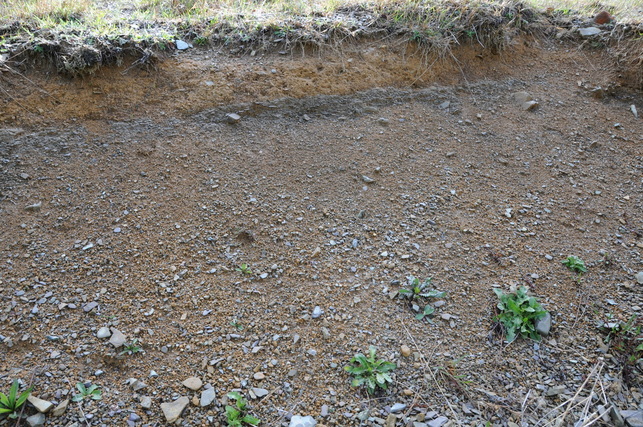 Hmmm... are we inspired yet? To kick off our epic soil remediation process, I had a wee chat with the Librarian Who Lives In My Head:
-- What soil amendments regulate acidity? Acceptable organic and permaculture solutions only, please. -- Lime, dolomite or wood ash and lots of organic matter. -- What about phosphorus deficiency? -- A passel of chooks should do the trick. -- That's fine for the vegie garden and maybe the orchard but what about the paddocks? -- Dunno, mate. Green manures? Pasture cropping? Strip grazing? Fukuoka-style seed balling? More animals? All of the above? Read more books or talk to someone who's already doing it. I'm off for my pedicure. -- Pedicure? But I always thought you were a bloke. -- Yeah? So? -- Feeling awkward now. That was in October 2009. I had the beginnings of a plan but it would be March 2010 before we were able to get back to Muntanui. When we returned, I learned one of the most important lessons associated with trying to live and farm sustainably: somewhere along the line, you'll be forced to make compromises... Resources NZ soil types: Landcare Research NZ weeds: Massey University's weed database Weeds as soil indicators: Woodrow, L., The Permaculture Home Garden, Penguin, Australia, 1995, pp 49-51. There's also a good general reference here: http://oregonbd.org/Class/weeds.htm For an overview of weeds and the services they perform in soil building, check out Weeds, Guardians of the Soil by Joseph A. Cocannouer. Originally published in 1950, nearly 30 years before Mollison and Holmgren's definitive Permaculture One hit the scene, this delightful little book was something of a trail-blazer. It refers to the ability of weeds to stabilise soil and "mine" nutrients, and advocates their controlled use to benefit agriculture. Although written for a US readership, there's plenty that's relevant anywhere in the world. The link will take you to a free online library. It's definitely worth a look. - Posted by Farmer Nik When we bought Muntanui in 2009, we also bought the furniture and major chattels. It was great to have a functioning house to walk into when we were able to visit but we always knew there'd be complications when we moved here permanently. And sure enough, there were. Before we left Australia, we sold those possessions we could bear to part with (read: hardly any) and shipped the rest, including our vehicle, over to New Zealand in a 40ft container. (Just for the record, Farmer Wan has been heard to declare on more than one occasion that we are, "Never. Doing. That. Again. EVER".) So, when our stuff finally arrived, we had a house full of furniture that we didn't like and a container full of furniture that we did. The logical next step would've been to sell the stuff we didn't want to keep... assuming that someone - anyone - wanted to buy it. Which they didn't. "Sorry," said the Nelson auction house owner after Farmer Wan showed him pics of our funky furniture, full of retro charm. He pointed to a modern-looking couch in great condition. "I couldn't sell that for $2 last week."
"Even kids moving out of home don't want second-hand these days," he continued. "They just go to [a massive retailer, whose evil empire spans entire continents] and buy something new on a four-year, interest-free deal." It was the same story everywhere: our stuff was too old, too used, too pre-loved. Yet it was still in reasonably good nick and we couldn't bear the thought of land-fill or bonfires. I was about to start ringing the local charities when Farmer Wan came up with another option: Freecycle. The name pretty much sums it up -- recycling stuff for free. It's brilliant. If there's a branch near you, consider using it. Within 12 hours of offering our furniture, I had half a dozen responses. It seems not everyone in Nelson has the means, or prefers, to buy new. The furniture went to the first person who contacted me. To top it off, our removal company made a second trip to Muntanui with stuff of ours that had been held back for MAF (Ministry of Ag & Fish) inspection. On their way back into town, they delivered our furniture to the Freecycle recipient... for free. Permaculture has a threefold ethic: care of the Earth, care of people and sharing your surplus. It wasn't until a few days later that I realised the Freecycle solution had ticked all three boxes. Then I felt very virtuous and had to have a nourishing bottle or two of cider to celebrate. Viva Freecycle! Posted by Farmer Nik |
About Ewan and NikiFarmer WanScottish mechanical engineer with a deep and abiding passion for good food. Outstanding cook. Builder of lots of stuff. Cattle whisperer. Connoisseur of beer. A lover rather than a fighter. Farmer NikKiwi writer and broadcaster who hates cabbage, even though she knows it's good for her. Chook wrangler. Grower of food and flowers. Maker of fine preserves. Lover of dancing and wine. Definitely a fighter. Archives
November 2016
Categories
All
|
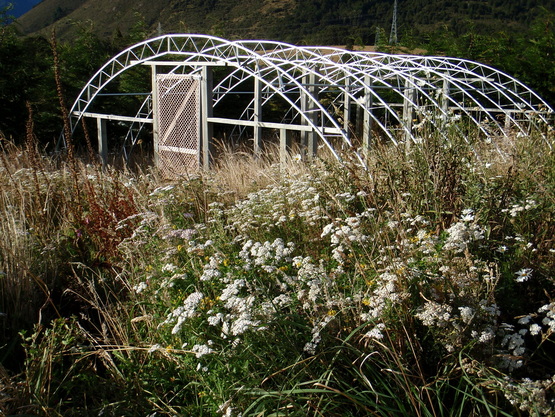
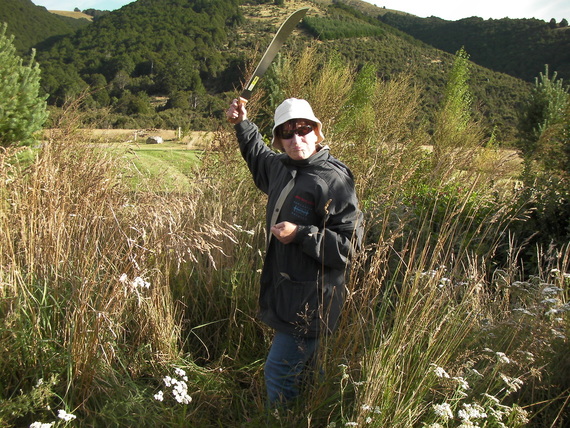
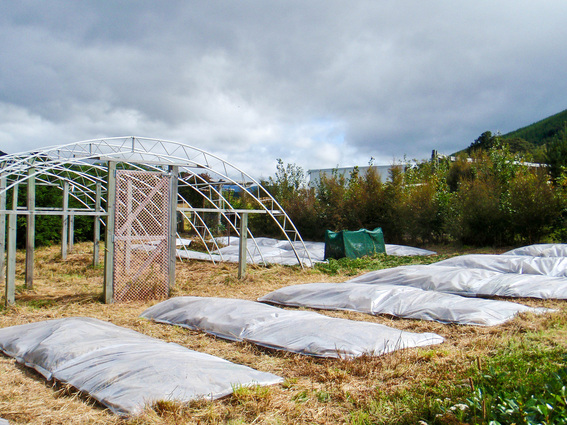
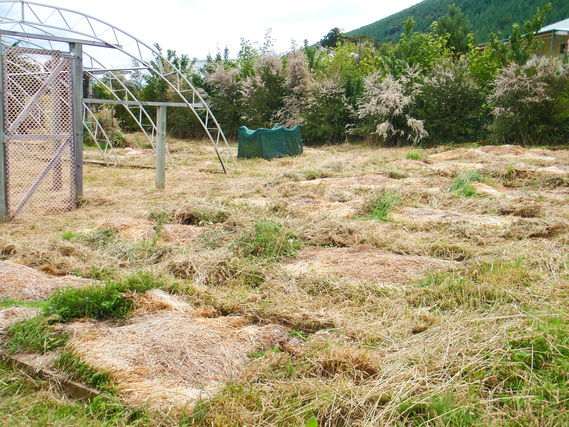
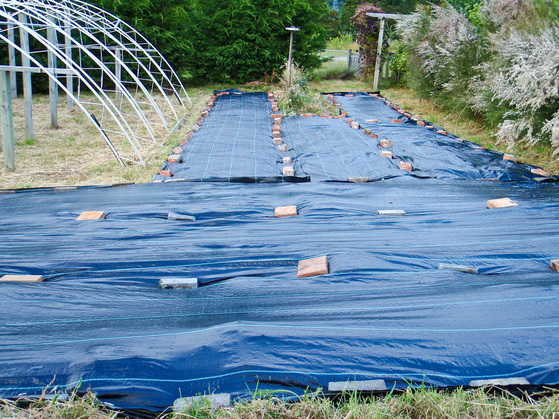
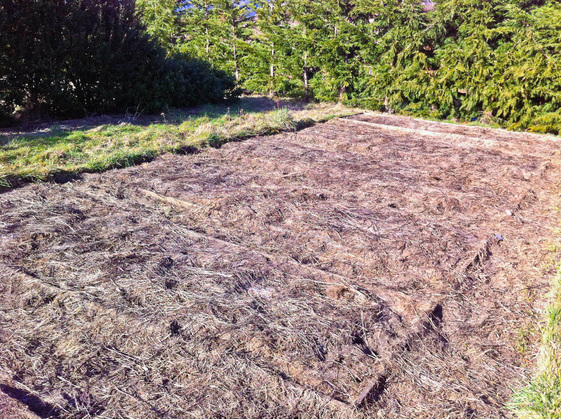



 RSS Feed
RSS Feed
